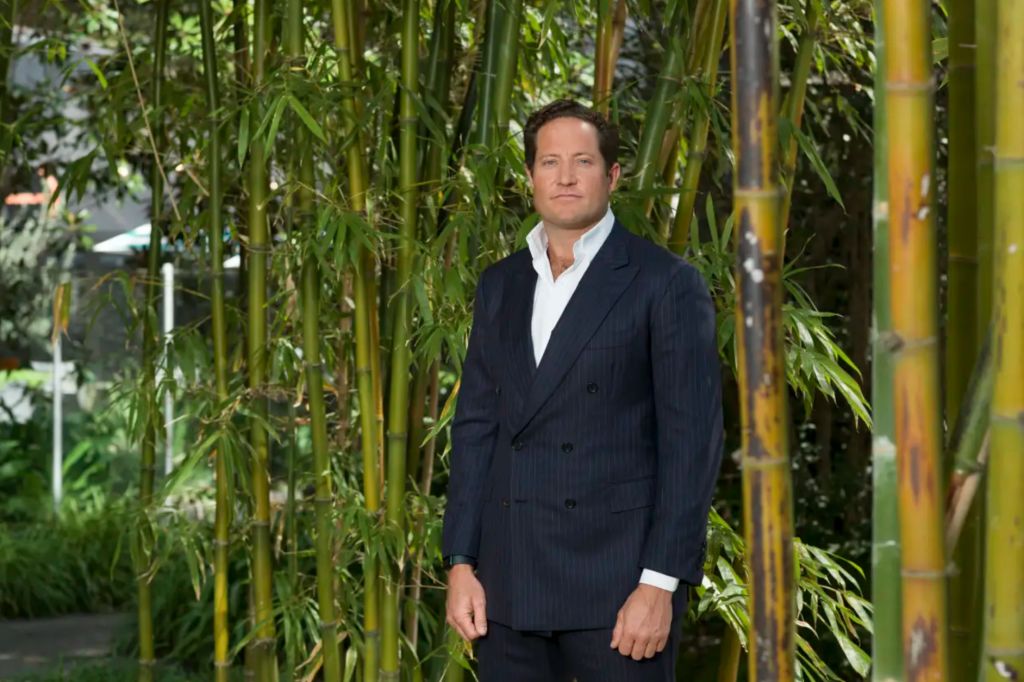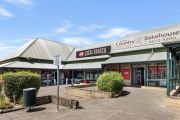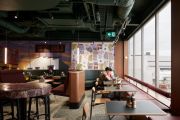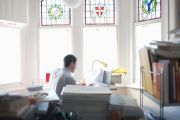
Putting greens and yoga: Deagues turn to co-working to lock in tenants
The family-owned Deague Group, a long-standing Melbourne developer, is pushing to become one of the country’s largest co-working space providers after launching its latest hub at its Kings Business Park in South Melbourne.
The 500sq m Kings Club co-working space, which replaced a Chinese restaurant that closed down during the pandemic, takes Deague’s national co-working footprint to about 19,000sq m and more than 2700 desks.
Amenities on offer at the new space include a golf simulator, putting green, a wellness room offering yoga classes, gym, sauna, cafe, meeting rooms and fully stocked bar.
“You need to throw a lot at it to get people back in the office,” managing director Jonathan Deague told The Australian Financial Review.
Users of Kings Club include health information technology company Medtech Global which has taken a 10-person space.
“They’ve gone from nearly fully working from home to going into the co-working space,” Mr Deague said.
Others making use of the co-working hub include sports radio station SEN. Mr Deague said the younger staff at the station particularly enjoyed using the golf simulator and having access to curated events.
“Following an initial intake of 60 members in stage 1, we intend to grow Kings Club to an occupancy of 300 members in the next six months,” Mr Deague said.
Mr Deague said offering co-working was key to retaining its existing tenants and bringing in new tenants. He said the group planned to add 1000sq m of flexible office space every year, including growing this component at its flagship Kings Business Park to 5000sq m over time.
Mr Deague said the repositioning of Kings Business Park to offer co-working space combined with its appealing location on the city fringe had lifted occupancy to 94 per cent, well above the 87 per cent recorded across the Melbourne CBD office market, according to the August Property Council Office Market Report.
He said the opportunities presented by the co-working sector had become apparent during the pandemic as companies adopted a more flexible working approach, with employees working partly in the office and from home.
Last year, Deague Group rolled out Central House – a high-end, flexible workplace solution, in collaboration with serviced office specialist APSO and co-working group The Commons – at 101 Moray Street, an office building it developed and still manages after selling the property to Centuria for $200 million last year.
“Kings Club is an evolution of the highly successful model we rolled out at 101 Moray Street, Central House,” Mr Deague said.
It would not be as high end as the professional services-focused Central House model, but Mr Deague said that, like hotels, where the Deagues have considerable experience, the co-working market could incorporate a variety of models and brands.
“It’s pretty hard to build company culture if everyone is at home. I think we are starting to see a shift [back to the office],” he said.
He added that Deague Group planned to roll out Central House at Vicland’s Toorak Road office development, where it has leased space.











